The rise of workplace EV charging

Electric mobility is becoming increasingly common, and many of your employees may now drive electric vehicles. Workplace EV charging isn’t just a convenience—it’s a powerful tool that can attract and retain talent, support sustainability goals, and even generate revenue.
However, installing EV chargers at your workplace can be complex. From site preparation to choosing the right equipment and understanding costs, there are many factors to consider. This guide will walk you through the key aspects of workplace EV charging, from planning to installation and beyond.
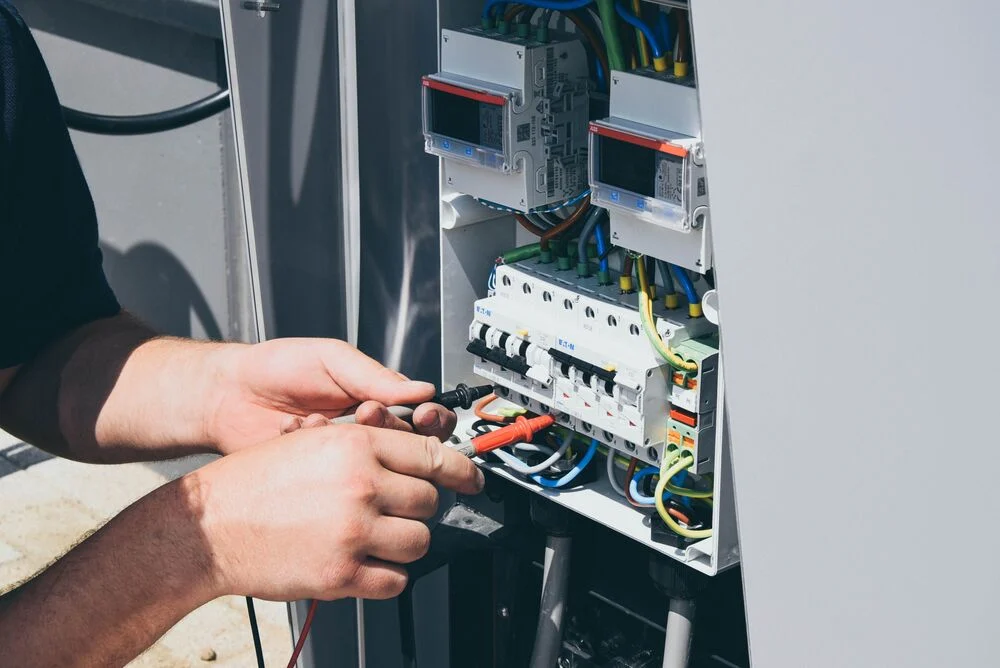
Can you install workplace EV chargers yourself?
No, you won’t be able to install EV chargers without help from a qualified installer.
Even basic AC charging stations are high-power electrical devices that can pose serious risks if not installed properly. Attempting a DIY installation can lead to damage, safety hazards, and void warranties. In some countries, like France, it's illegal to install an EV charger without a licensed electrician.
Always check whether installation is included in the total cost when purchasing your EV chargers. If not, ask for a list of certified installers who can handle the process professionally.
Common installation challenges of workplace EV chargers
Every workplace has unique constraints, so installing EV chargers requires careful planning. Here are some of the most common issues you might face:
Having a limited power capacity
Your existing electrical system might not be able to handle the additional load from EV charging. You may need to upgrade your grid connection or modify your electrical panel, which adds to the complexity and cost of the project.
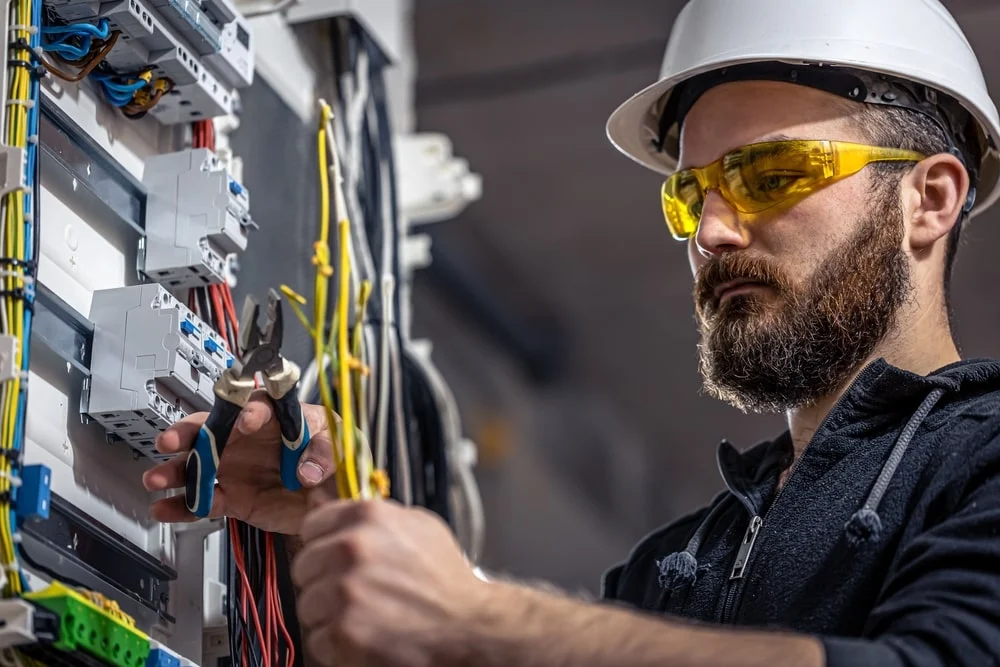
Underestimating connection possibilities for preferred charger locations
The ideal spot for a charging station might not be the easiest to connect. You could end up with extra costs for running cables from your main electrical panel to the desired location.
Overlooking the way the EV charging stations will be used
Consider how the chargers will be used. Will they be used simultaneously? Do you want to manage access for employees, visitors, or customers? Planning ahead helps avoid complications later on.
It’s wise to develop a clear charging strategy before installation. This ensures your setup meets your business needs and user expectations.
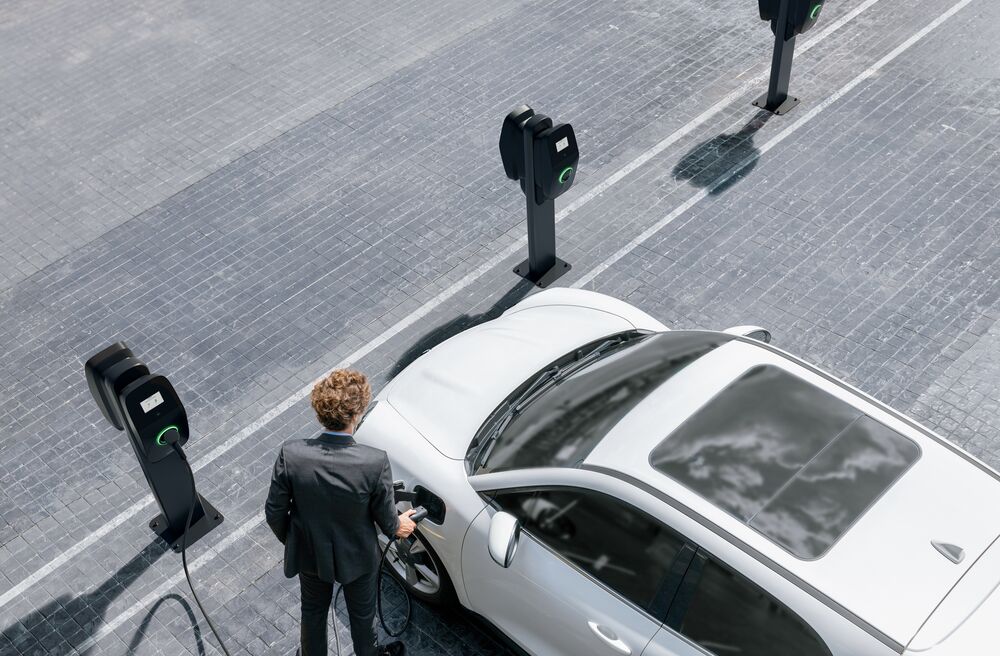
Modern EV charging stations offer much more than just hardware. With smart features like load balancing, remote monitoring, and user management, they can adapt to your needs and improve efficiency.
In this REVOLUTION Podcast episode, we spoke to Niklas Enkvist about the software side of EV charging and how it enhances the user experience.
Â
How to install a workplace EV charging station?
Here are the main steps to follow when installing workplace EV charging stations:
1. Conduct a detailed site assessment
Before making any decisions, have a certified electrician assess your site. This includes checking the planned location and evaluating your building’s electrical system. They’ll also look at any necessary groundworks, cable runs, or electrical panel upgrades.

This step is crucial for ensuring your installation is future-proof and scalable. Think about how your EV charging needs may grow over time and design your system accordingly.
2. Evaluating your grid connection
Your building’s grid connection is a major factor in determining what kind of EV charging you can install. A typical AC charger uses between 7.4 kW and 22 kW, which is equivalent to powering dozens of computers or laptops.

Understanding your available power capacity is essential. You’ll need to determine whether upgrades are required to prevent overloading your electrical system.
Smart features like load balancing can help manage energy use efficiently, even if you have multiple chargers running at the same time.
In this REVOLUTION Podcast episode, Linda Grave discussed the importance of load balancing in optimizing EV charging systems.
Â
Other optimization techniques include scheduling charges during off-peak hours or using renewable energy sources where possible. These strategies can help reduce costs and improve efficiency.
In another insightful episode, Hanno Klausmeier shared how his team at SAP Labs France optimized their grid connection without requesting additional capacity from the utility company.
Â
How long does it take to install workplace EV charging stations?
Installing EV charging stations is more involved than simply plugging them into an outlet. The timeline varies based on the complexity of your site and the scale of the project. It can take anywhere from a few days to several weeks—or even months.
Ask your installer for a detailed timeline that outlines each stage of the process. This will help you plan effectively and minimize disruptions to your daily operations.
What are the installation costs for workplace EV chargers?
Cost is always a big concern. Installation typically makes up 60–80% of the total cost of workplace EV charging. As a rough estimate, installing 10 AC chargers in the EU could cost around €15,000, with labor accounting for about €8,000 and components like wiring and circuit breakers adding another €7,000.
Keep in mind that actual costs depend on the charger type, installation complexity, your location, and local regulations or incentives.
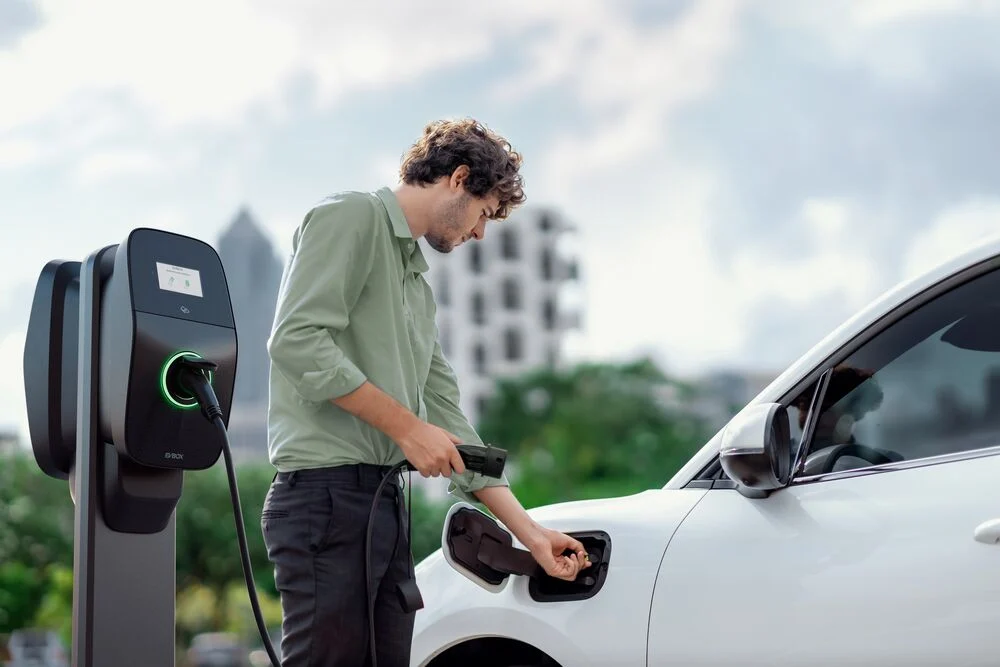
Getting started with workplace EV charging
Installing EV charging stations at your workplace can be more complex than it appears. However, modern solutions like load balancing and smart connectivity features can simplify the process and help overcome many challenges.
Not all EV charging solutions are the same. Planning carefully and considering all the factors outlined in this guide can help ensure a smooth and efficient installation, avoiding costly surprises along the way.
Meet EVBox Liviqo - Hassle-free charging that works for your business
If you’re looking to install EV charging stations at your location, consider our latest solution, the EVBox Liviqo. Designed for hassle-free workplace charging, it offers scalability, smart features, and easy integration with your existing infrastructure. It’s built to address many of the challenges discussed in this article, making it a great choice for businesses looking to embrace electric mobility.
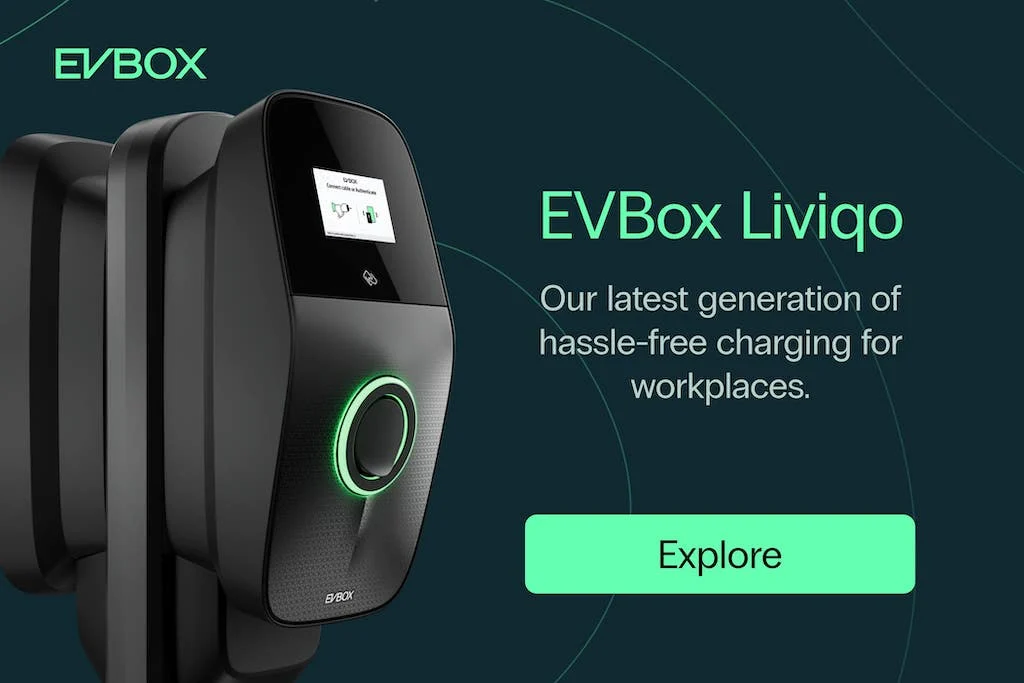
Â







